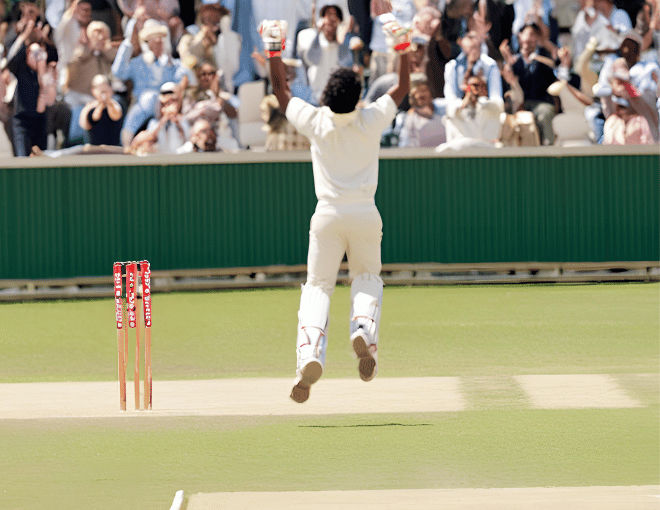 Most people bet with the same mindset they bring to a night out with friends—casual, in the moment, and without much thought about tomorrow. That works fine if you see betting as entertainment. However, if you want to win consistently, treating it casually doesn’t suffice. Long-term success in sports betting (or any form of wagering) comes down to one habit: tracking every single bet you place, a discipline often emphasized by platforms like BetLabel to help players stay accountable.
Most people bet with the same mindset they bring to a night out with friends—casual, in the moment, and without much thought about tomorrow. That works fine if you see betting as entertainment. However, if you want to win consistently, treating it casually doesn’t suffice. Long-term success in sports betting (or any form of wagering) comes down to one habit: tracking every single bet you place, a discipline often emphasized by platforms like BetLabel to help players stay accountable.
It might sound tedious, but keeping records is what separates casual gamblers from disciplined bettors. Here’s why it matters so much, and how it can completely change your results.
1. You See the Truth About Your Performance
Most bettors think they know how they’re doing. They’ll say things like “I usually do well on NFL games” or “I’m terrible with parlays.” But memory is unreliable. We tend to remember the big wins that felt great and forget the small losses that added up.
Tracking bets cuts through that bias. With records, you know exactly:
- How many bets have you placed?
- Your win/loss record.
- Profit and loss broken down by sport, league, or bet type.
Instead of guessing, you’ll have data to confirm what’s really working. Sometimes, that means realizing you’re not as good at something as you thought. Other times, it shows hidden strengths. Either way, you get clarity.
2. It Forces Discipline
When you know every bet will be logged, you think twice before firing off a half-baked pick. Tracking creates accountability. It’s like keeping a food diary when dieting—you’re less likely to grab a donut if you know you’ll have to write it down.
A betting log works the same way. It slows you down, helps prevent impulse bets, and pushes you toward better decisions. Even if you don’t consciously think about it, the act of writing it down makes you more intentional.
3. You Learn Where Your Edge Really Is
Every bettor has strengths and weaknesses, but most never identify them clearly. You may do better with underdogs than favorites. Your NBA betting outperforms the NFL. Totals are a weak spot.
Without tracking, these patterns stay hidden. With a record, you can filter results and find your edge. Once you know where you’re profitable, you can scale up there—and scale back in areas where you’re losing. This is how you turn betting into something more than luck.
4. You Can Manage Your Bankroll Smarter
Bankroll management is the backbone of long-term success. But managing your bankroll well requires knowing how much you’ve staked, how much you’ve won or lost, and how volatile your results are.
Tracking your bets gives you all of this. You’ll know:
- Your return on investment (ROI).
- Your average bet size.
- The risk you’re taking in relation to your bankroll.
With that information, you can decide when to raise stakes, when to cut back, and how to ride out inevitable downswings without going broke.
5. It Helps You Adjust Strategy Over Time
The betting landscape changes. Odds markets shift, teams evolve, and trends that once worked stop paying off. Without data, you might keep using an outdated strategy long after it stopped being profitable.
By tracking results, you’ll see when performance starts to slip. Perhaps your baseball system worked well for three seasons, but then suddenly turned negative. Instead of blaming it on bad luck, you’ll have proof that it’s time to make adjustments.
6. It Keeps You Honest About Luck vs. Skill
Anyone can get hot for a week or two. You might hit a parlay or go on a lucky streak. But luck always evens out. Tracking helps separate short-term variance from actual skill.
If you’re profitable over hundreds of tracked bets, you know you’re doing something right. If you’re losing consistently despite feeling like you’re making “good picks,” it shows you need to rethink your approach. The numbers don’t lie.
How to Track Your Bets the Right Way
You don’t need anything fancy to start. A simple spreadsheet works, though plenty of betting apps exist that make it easier. The key is to be consistent and record the correct details. At minimum, log:
- Date of bet
- Sport/league
- Teams or events
- Bet type (spread, total, moneyline, prop, parlay, etc.)
- Odds
- Stake amount
- Result (win/loss/push)
- Profit or loss
Once you’ve built up data, you can add breakdowns—like ROI by sport, performance by day of the week, or success rate on live bets versus pregame. The more detail you capture, the clearer the picture becomes.
The Mental Benefit of Tracking
There’s also a psychological edge. Betting can feel like a rollercoaster. Big wins make you feel invincible. Bad runs make you want to chase losses. Tracking provides balance.
When you see the long-term numbers, the swings don’t feel as extreme. A losing day isn’t the end of the world if you know you’re profitable over the past three months. A big win feels great, but you won’t overinflate your confidence when you see it’s just one data point in a larger sample.
This perspective keeps emotions in check—a huge advantage in a field where emotion often leads to mistakes.
Final Thoughts
Betting without tracking is like running a business without keeping books. You might think you’re profitable, but until you see the numbers, you’re guessing. Serious bettors don’t guess—they measure.
Tracking every bet won’t guarantee success. You still need sharp analysis, discipline, and the ability to adapt. But without it, you’re playing blind. The bettors who last, who win over time, are the ones who know exactly where their money is going and why.
If you want to make betting more than a casual hobby, start today. Open a spreadsheet. Record your next wager. Do it consistently. Over time, those records will be the difference between being another bettor who fades out and being one who builds real, lasting success.

 Most people bet with the same mindset they bring to a night out with friends—casual, in the moment, and without much thought about tomorrow. That works fine if you see
Most people bet with the same mindset they bring to a night out with friends—casual, in the moment, and without much thought about tomorrow. That works fine if you see  All gambling websites are not merely a game portal. It represents an online ecosystem that is a place where entertainment and financial transactions meet. Players in Malaysia transfer money via e-wallets, online transfer or even cryptocurrency in some instances. Such systems increase accessibility not only, but also emphasize the fact that gambling is closely connected to financial innovation.
All gambling websites are not merely a game portal. It represents an online ecosystem that is a place where entertainment and financial transactions meet. Players in Malaysia transfer money via e-wallets, online transfer or even cryptocurrency in some instances. Such systems increase accessibility not only, but also emphasize the fact that gambling is closely connected to financial innovation. The welcome bonus is one of the regular attractions of the online casino market in Europe. A lot of the best sites promote big amounts of bonus and free spins. However, like most of the Trustpilot reviews indicate, the fine print is often the weaker side of the coin. The wagering requirements, maximum bet limits, exclusions of certain games, and the slow or slow and cumbersome withdrawal processes tend to transform the generous offers into disappointments.
The welcome bonus is one of the regular attractions of the online casino market in Europe. A lot of the best sites promote big amounts of bonus and free spins. However, like most of the Trustpilot reviews indicate, the fine print is often the weaker side of the coin. The wagering requirements, maximum bet limits, exclusions of certain games, and the slow or slow and cumbersome withdrawal processes tend to transform the generous offers into disappointments. The list below is generally helpful in finding the best apps for gamblers who are in a budget. The following apps assist gamblers to be aware on their spending habits while enjoying gambling. Thus resulting in an easier way to spend money without worrying if you’ll spend or not.
The list below is generally helpful in finding the best apps for gamblers who are in a budget. The following apps assist gamblers to be aware on their spending habits while enjoying gambling. Thus resulting in an easier way to spend money without worrying if you’ll spend or not. Record Your Income
Record Your Income











 Although specific lottery techniques and strategies may say they raise your odds of winning, each draw is a random occurrence. The result cannot be exactly anticipated.
Although specific lottery techniques and strategies may say they raise your odds of winning, each draw is a random occurrence. The result cannot be exactly anticipated. Baccarat is a captivating game known for its simplicity and low house edge, making it a popular choice for many casino players. But while baccarat can be fun, it’s easy to overlook the importance of bankroll management, especially when caught up in the excitement of the game. Successful baccarat players know that effective bankroll management is key to maintaining financial stability and enhancing long-term winning potential.
Baccarat is a captivating game known for its simplicity and low house edge, making it a popular choice for many casino players. But while baccarat can be fun, it’s easy to overlook the importance of bankroll management, especially when caught up in the excitement of the game. Successful baccarat players know that effective bankroll management is key to maintaining financial stability and enhancing long-term winning potential.

 Playing slot machines does have a handful of advantages. To explain briefly, newcomers like to play the slot machines because of their user-friendly interface. Aside from that, the gaming machine is really entertaining and can occupy the players’ attention for almost an hour. Finally, players are enticed by the large, potentially life-changing bonuses offered by most slots, including 30 free spins with no deposit needed.
Playing slot machines does have a handful of advantages. To explain briefly, newcomers like to play the slot machines because of their user-friendly interface. Aside from that, the gaming machine is really entertaining and can occupy the players’ attention for almost an hour. Finally, players are enticed by the large, potentially life-changing bonuses offered by most slots, including 30 free spins with no deposit needed.


